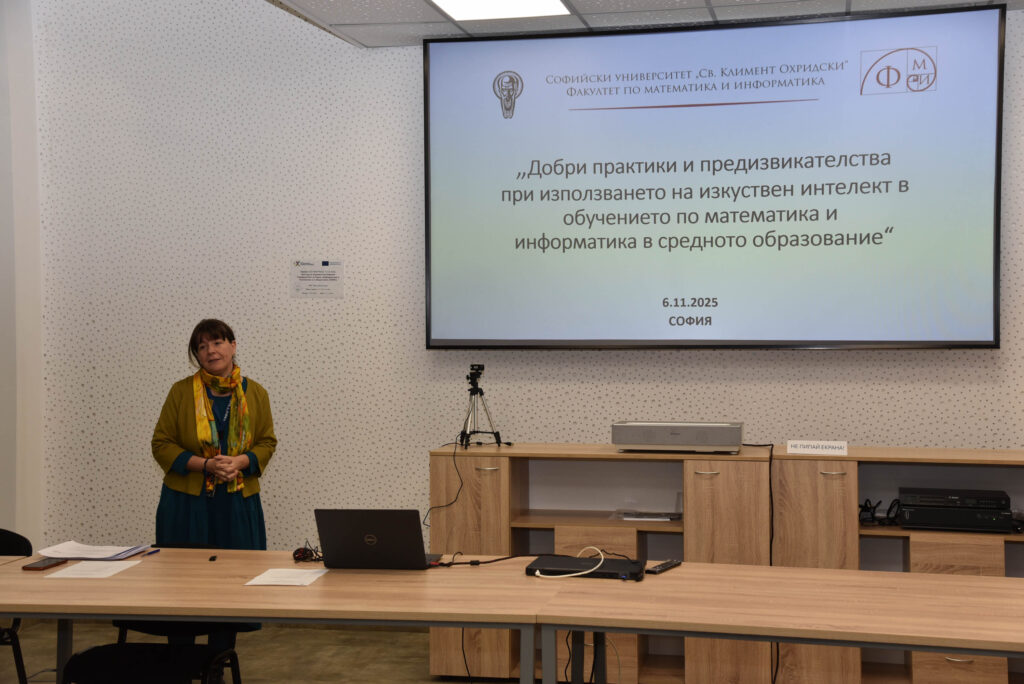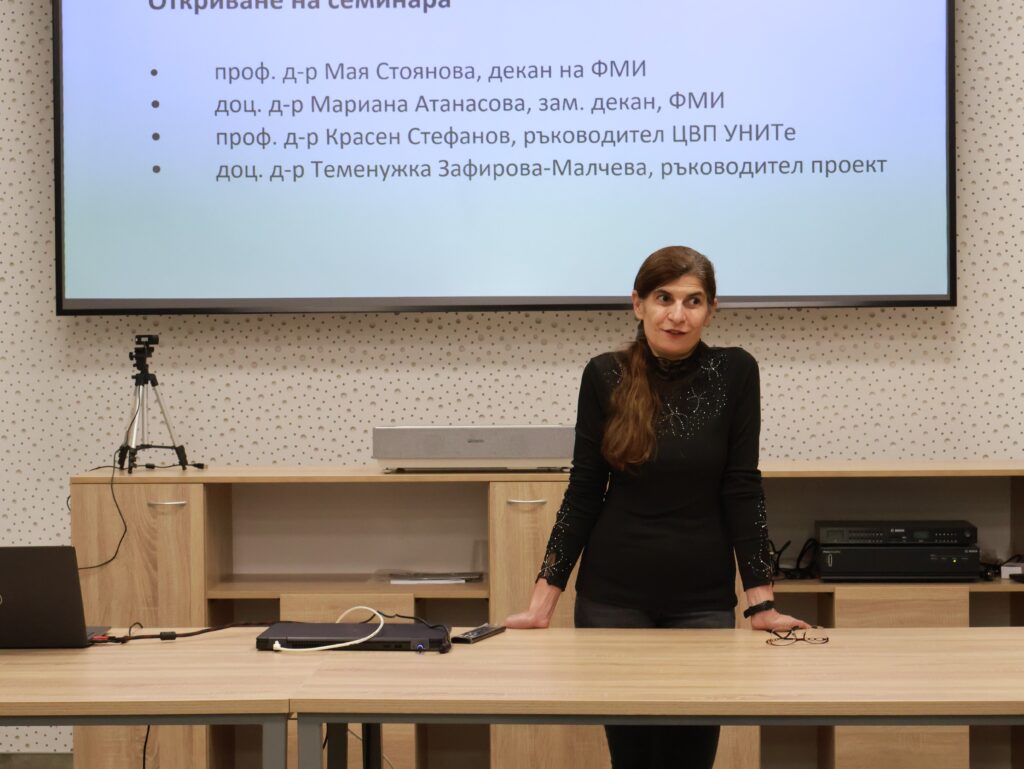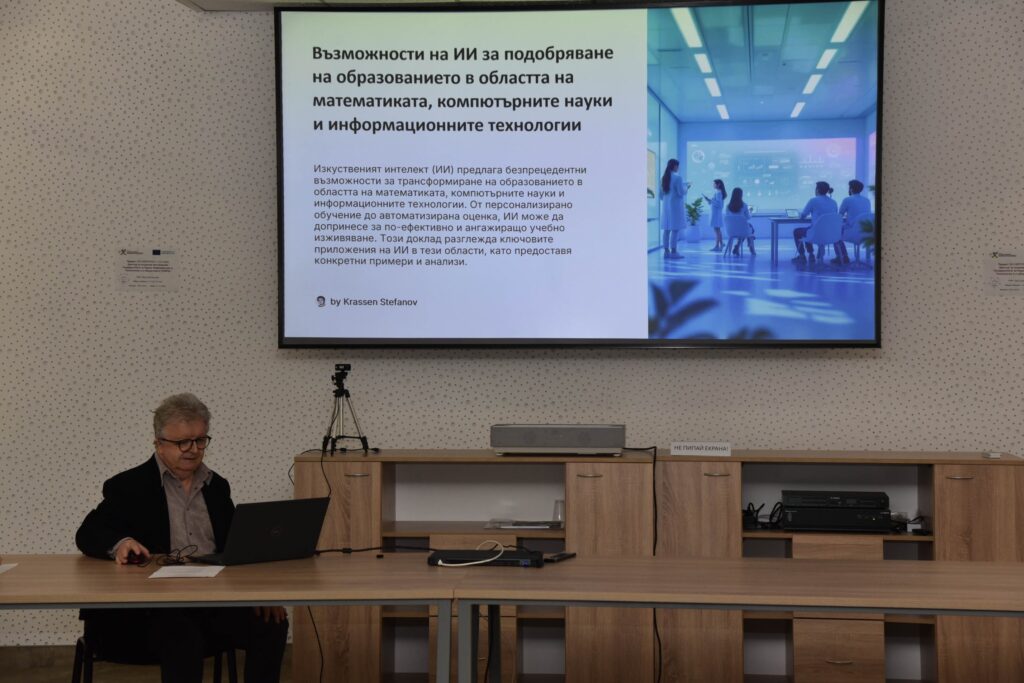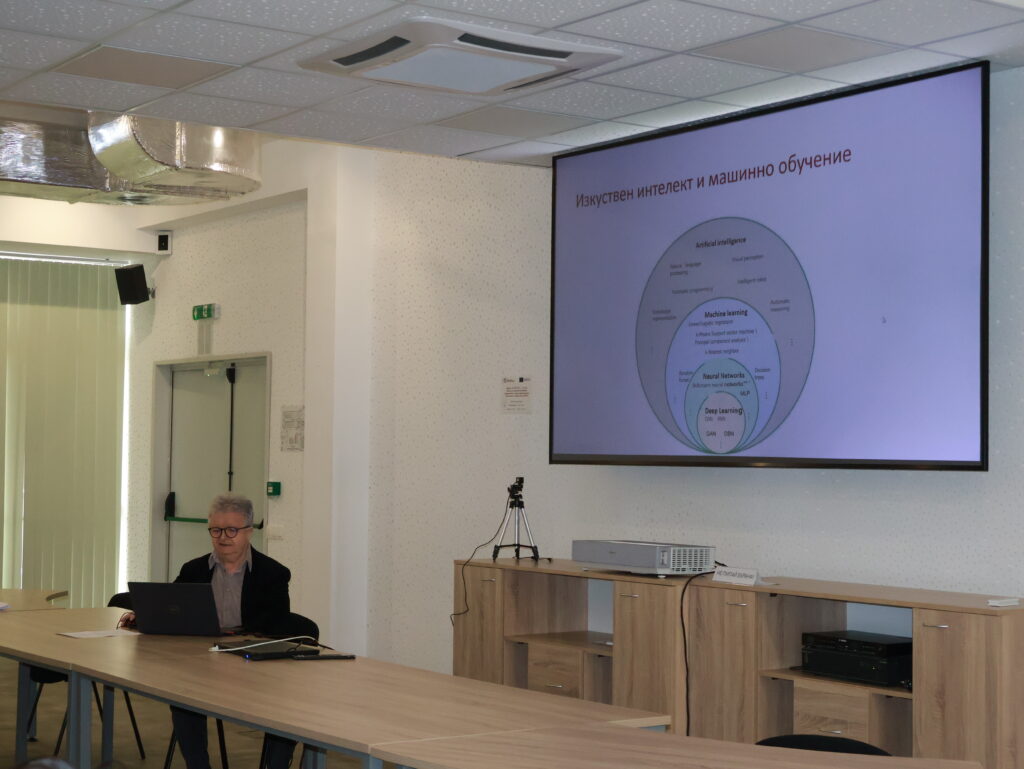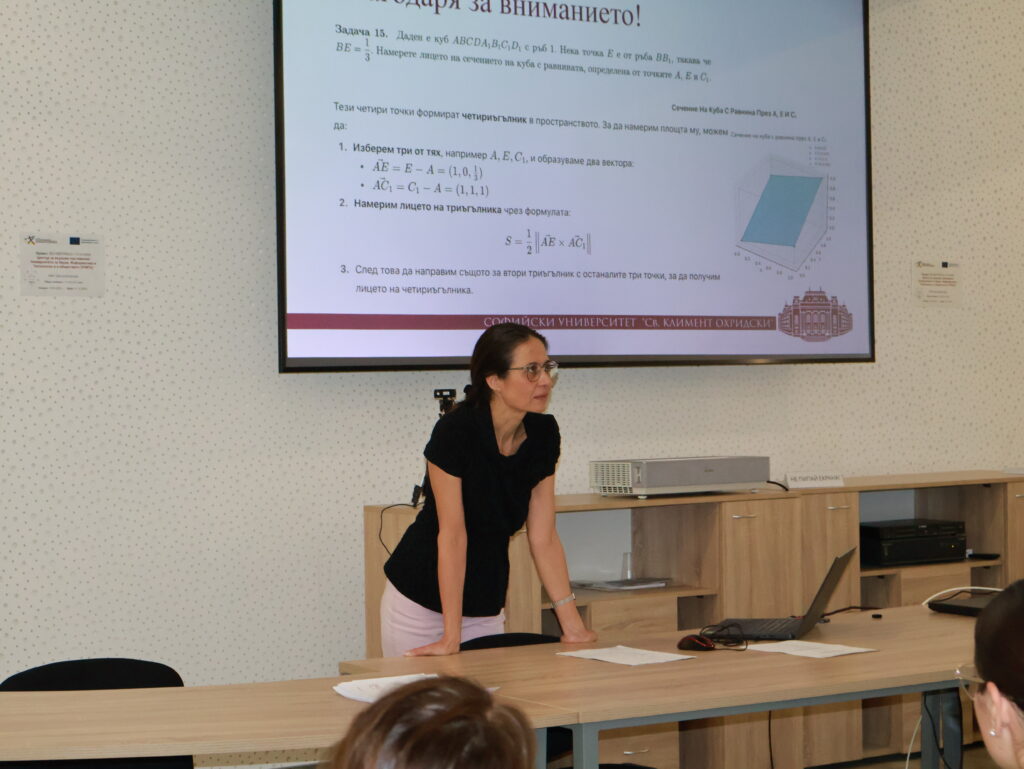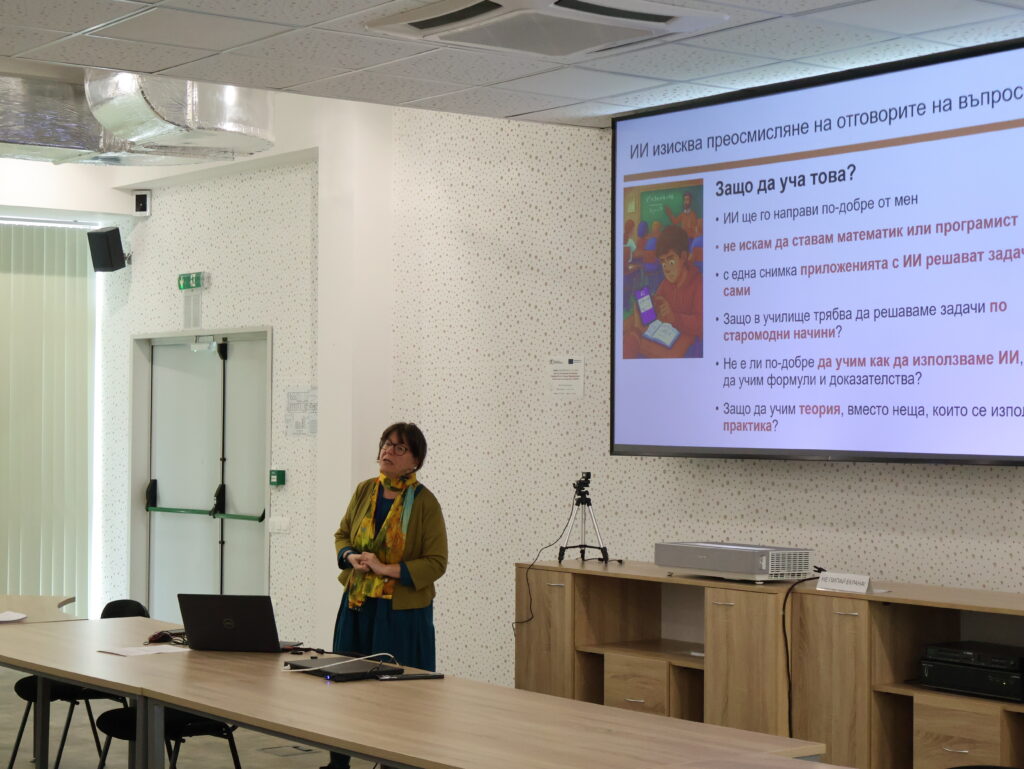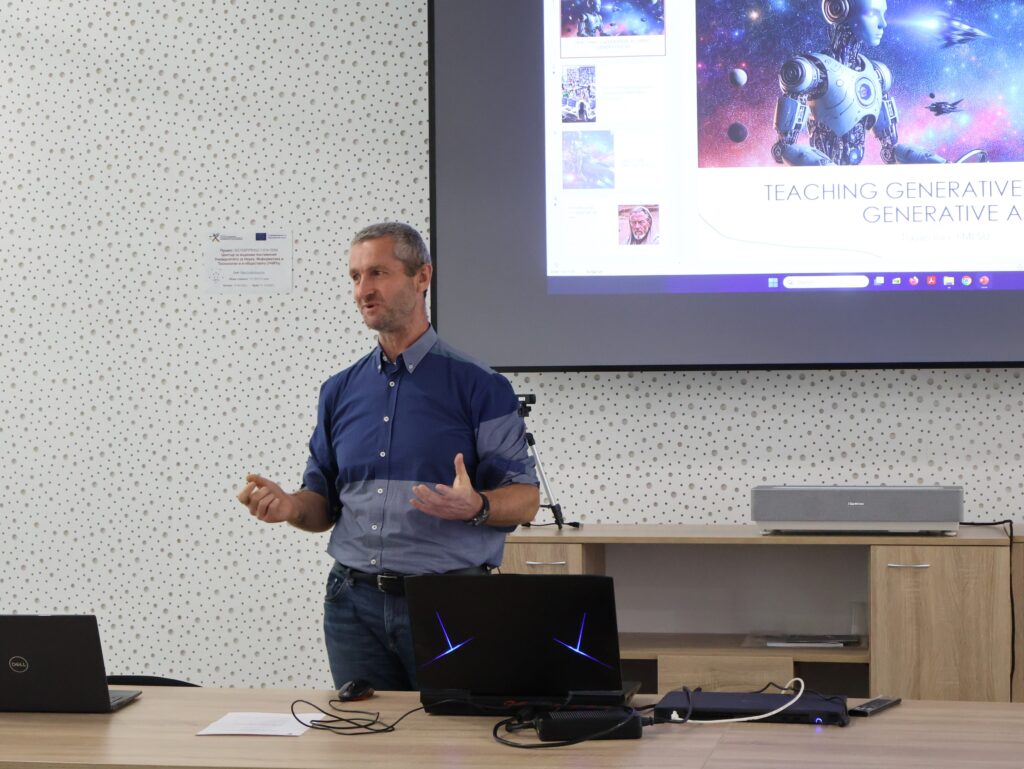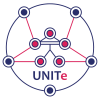On November 6, 2025, a seminar on “Good practices and challenges in the use of artificial intelligence in mathematics and computer science education in secondary education” was held in the conference hall of the Center of Excellence UNITe at the Sofia University “St. Kliment Ohridski”.
The forum was organized by the Faculty of Mathematics and Informatics (FMI) at Sofia University, in partnership with the Regional Education Administration – Sofia City, and attracted more than 65 lecturers, experts, as well as current and future teachers. The discussions focused mainly on the opportunities and difficulties of integrating artificial intelligence tools into mathematics, computer science, and information technologies education.
The seminar was opened by Prof. Maya Stoyanova, Dean of the FMI, who emphasized that the faculty is always open to the teaching community and that the advent of artificial intelligence is a topic that excites the whole society. Congratulations to the participants were also extended by the experts from the Regional Education Administration in Sofia, Magdalena Zaharieva and Nikolay Vassilev.
Assoc. Prof. Mariana Atanasova welcomed the guests, and Prof. Krassen Stefanov pointed out that the UNITe project includes a whole work package dedicated to the innovative technologies in teaching. He invited his colleagues to stay tuned for upcoming events.
Assoc. Prof. Dr. Temenuzhka Zafirova – Malcheva, head of project No. 80-10-182/04.06.2025 “Research on good practices for the application of high-tech tools in mathematics, computer science, and IT education,” expressed her satisfaction with the interest and engagement shown in the topic.
The program began with a plenary lecture by Prof. Krassen Stefanov, who traced the development of artificial intelligence and generative models – their evolution and continuous improvement, as well as the role of machine learning as the basis of modern artificial intelligence. He presented a number of successful examples of AI application in education, including specific practices in mathematics and computer science teaching.
Dr. Ralitsa Stamenkova proposed valuable guidelines for the critical and effective use of AI by teachers. She focused on the role of artificial intelligence as a tool for enriching lessons through examples, practical tasks, and developing critical thinking in students. According to her view, teachers should be well aware of the applications used by students and parents in order to be able to guide and support them in a competent way.
In her presentation Senior Assistant Professor Dr. Albena Antonova touched also on the risks that come with the introduction of AI in the classroom, in mathematics, computer science, IT, and computer modeling education. “To what extent can we trust AI in the educational process? What do we actually learn through it, and when do the results lead to superficial learning? Will AI remain just an experiment, or will it become the education of the future?” These were some of the questions that sparked a lively discussion among teachers. It is well known that artificial intelligence is manipulative, does not admit its mistakes, and causes children in particular to trust it too much. Interaction between students and AI can lead to tragic incidents as a result of developing an emotional connection. Many of the teachers shared that they are increasingly faced with the challenge of combining new technologies with traditional teaching methods so that students can acquire knowledge in a lasting and mindful way, be critical, and learn to set boundaries.
In the last part of the seminar Trayan Iliev presented student developments from the Multi-Agent Systems course, demonstrating practical applications of the artificial intelligence. He underlined that it is important for young people not only to use AI, but also to create their own AI-based solutions. The projects presented inspired the seminar participants to seek opportunities for implementing interdisciplinary and STEM initiatives related to AI, robotics, and new technologies.
All participants were very impressed with the seminar. One of the teachers attending said: “Thank you for the organization, conducting, and inspiration! Thank you for doing all this – it is priceless!”.
This exciting event once again confirmed the leading role of the Faculty of Mathematics and Informatics at Sofia University as a driver of innovation in education, and showed that the university remains a reliable partner to teachers in their mission to prepare students for the future.
